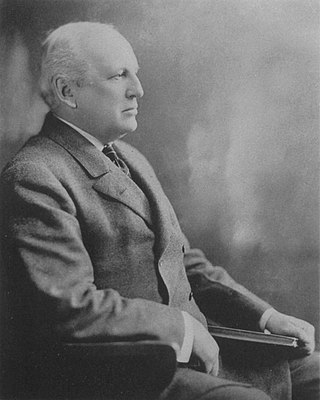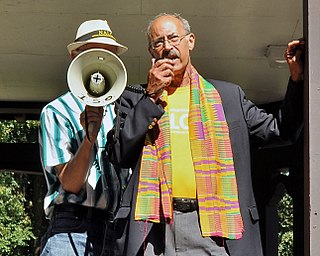
Unitarian Universalist Association (UUA) is a liberal religious association of Unitarian Universalist congregations. It was formed in 1961 by the consolidation of the American Unitarian Association and the Universalist Church of America, respectively. However, modern Unitarian Universalists see themselves as a separate religion with its own beliefs and affinities. They define themselves as non-creedal, and draw wisdom from various religions and philosophies, including humanism, pantheism, Christianity, Hinduism, Buddhism, Taoism, Judaism, Islam, and Earth-centered spirituality. Thus, the UUA is a religious group with liberal leanings.

Unitarian Universalism is a liberal religious movement characterized by a "free and responsible search for truth and meaning". Unitarian Universalists assert no creed, but instead are unified by their shared search for spiritual growth. Unitarian Universalists do not have an official, unified corpus of sacred texts. Unitarian Universalist congregations include many atheists, agnostics, deists, and theists; there are churches, fellowships, congregations, and societies around the world.

Unitarianism is a nontrinitarian branch of Christianity. Unitarian Christians affirm the unitary nature of God as the singular and unique creator of the universe, believe that Jesus Christ was inspired by God in his moral teachings and that he is the savior of humankind, but he is not equal to God himself. Accordingly, Unitarians reject the Ecumenical Councils and ecumenical creeds, and sit outside traditional, mainstream Christianity.
These are articles that list people of a particular religious or political belief or other worldview.
This is an index page of Wikipedia articles related to the topic of religion.

Beacon Press is an American left-wing non-profit book publisher. Founded in 1854 by the American Unitarian Association, it is currently a department of the Unitarian Universalist Association. It is known for publishing authors such as James Baldwin, Mary Oliver, Martin Luther King Jr., and Viktor Frankl, as well as The Pentagon Papers.

A flaming chalice is the most widely used symbol of Unitarianism and Unitarian Universalism (UUism) and the official logo of the Unitarian Universalist Association (UUA) and other Unitarian and UU churches and societies.

James Joseph Reeb was an American Unitarian Universalist minister, pastor, and activist during the civil rights movement in Washington, D.C., and Boston, Massachusetts. While participating in the Selma to Montgomery marches actions in Selma, Alabama, in 1965, he was murdered by white segregationists and white supremacists, dying of head injuries in the hospital two days after being severely beaten. Three men were tried for Reeb's murder but were acquitted by an all-white jury. His murder remains officially unsolved.

The First Unitarian Church of Rochester is located at 220 Winton Road South in Rochester, New York, U.S. The congregation is one of the largest in its denomination, the Unitarian Universalist Association. The non-creedal church conducts programs in the areas of spirituality, social concerns, music, and arts. This church is one of two Unitarian Universalist congregations in Monroe County, the other being First Universalist Church of Rochester.

Charles Francis Potter was an American Unitarian minister, theologian, and author.
The Religious Coalition for Reproductive Choice (RCRC) is an abortion rights organization founded in 1973 by clergy and lay leaders from mainline denominations and faith traditions to create an interfaith organization following Roe v. Wade, the 1973 U.S. Supreme Court decision legalizing abortion in the U.S. In 1993, the original name – the Religious Coalition for Abortion Rights (RCAR) – was changed to the Religious Coalition for Reproductive Choice.

Samuel Atkins Eliot II was an American Unitarian minister. In 1898 the American Unitarian Association elected him secretary but in 1900 the position was redesignated as president and Eliot served in that office from inception to 1927, significantly expanding the association's activities and consolidating denominational power in its administration.

Trinitarian universalism is a variant of belief in universal salvation, the belief that every person will be saved, that also held the Christian belief in Trinitarianism. It was particularly associated with an ex-Methodist New England minister, John Murray, and after his death in 1815 the only clergy known to be preaching Trinitarian Universalism were Paul Dean of Boston and Edward Mitchell in New York.

The Rev. William G. Sinkford is a Unitarian Universalist minister who served as the seventh president of the Unitarian Universalist Association of Congregations (UUA), from 2001 to 2009. His installation as UUA president made him the first African American to lead that organization, or any traditionally white religious denomination in the United States.
The Clergy Letter Project is a project that maintains statements in support of the teaching of evolution and collects signatures in support of letters from American Christian, Jewish, Unitarian Universalist, Buddhist, and Humanist clergy. The letters make reference to points raised by intelligent design proponents. There are five separate letters: A Christian Clergy Letter, a Rabbi Letter, a Unitarian Universalist Clergy Letter, a Buddhist Clergy Letter, and a Humanist Clergy Letter. As of October, 2022, there were 15,679 signatures from Christian clergy, 839 signatures from Jewish rabbis, 688 signatures from Unitarian Universalist clergy, 75 signatures from Buddhist clergy, and 58 signatures from Humanist clergy.

The First Universalist Church is a historic Universalist church building located at 150 S. Clinton Ave. in Rochester, New York. Construction began in September 1907 and was dedicated in October 1908. First Universalist Church is affiliated with the Unitarian Universalist Association and is one of two Unitarian Universalist congregations in Monroe County, New York; the other being the First Unitarian Church of Rochester.
First Unitarian Church of Los Angeles is an independent congregation affiliated with the Unitarian Universalist Association of Congregations. Since its founding in 1877 the church has been a leader in social justice activism for the Unitarian Universalist faith, and for the city of Los Angeles. Its embrace of progressive causes and sometimes radical politics have earned it a reputation as both a place of controversy and a beacon of justice. Its affiliated organization, Urban Partners Los Angeles, provides numerous programs in the neighborhood around the church.
Unitarian Universalist Church of Kent, Ohio is a Unitarian Universalist ("UU") church in Kent, Ohio. Founded in 1866, the current building was completed by builder Joseph Gridley (1820-1902) in 1868 on land donated by philanthropist Marvin Kent and rests on a bedrock of sandstone. Its 19 founding members were among the major movers and shakers of the then Village of Franklin Mills, and included abolitionists and Civil War veterans. They were: Dr. Aaron M. Sherman, M.D., who served as a Civil War surgeon, a prominent civic promoter, served many terms on the local school board, co-founded the Rockton Masonic Lodge that occupies the historic 1883 summer home of Marvin Kent on West Main Street, served as a State Representative in the Ohio State House of Representatives and whose 1858 home first built by Zenas Kent for his daughter Frances and her husband George Wells was recently saved, moved and restored by local historic preservation activists, Arvin Olin, Ransom Olin, Nelson Olin, Joseph Stratton, who, in 1882, donated the large bell that is in the church belfry, Phillip Boosinger, Mary Boosinger, Rhoda Boosinger, James D. Haymaker and Mary Rosetta Olin Haymaker, J.G. Whitcomb, T.H. Marshall, Eliza Wright, A. Merrell, Almund Russell, Sybil Bradley, Effie Parsons, Mary J. Parsons and Mary A. Furry. These 19 men and women gathered on May 27, 1866, to write and sign the church's constitution in the historic 1836 Village Hall that would serve as an early place of worship before the church building was completed next door in 1868. It is the only church still using its original 19th century building in the city of Kent and in 1976 the site was designed as a "significant restored building site". In the early and middle twentieth century when there were few women clergy anywhere in the United States, the church is notable for having several women ministers: Abbie Danforth in 1889, Carlotta Crosley in 1903, and Violet Kochendoerfer in 1972. Membership is between 140 and 200 full-time adults as well as 100 children in its religious education programs. The church runs a summer camp called Kent Hogwarts which is a Harry Potter-themed camp for young kids, which emphasizes chemistry, poetry, singing and community service. The church advocates social justice, environmental awareness, democracy and acceptance of diverse peoples including all religions. The Kent church follows the seven basic principles of Unitarian Universalism.










